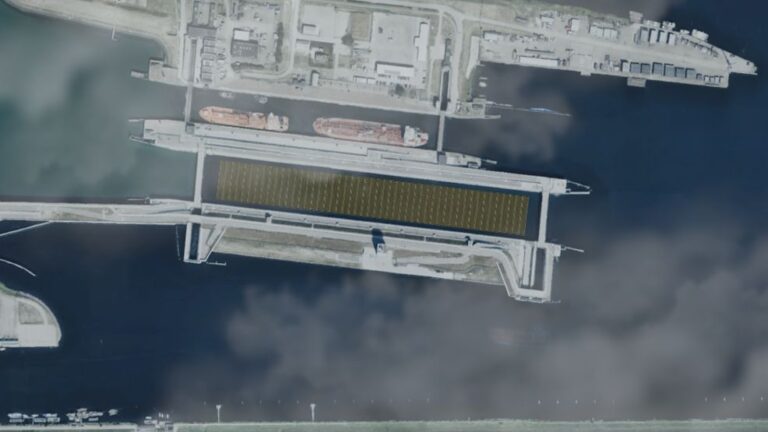The initial floating solar panels for the Hollandse Kust Noord (HKN) offshore solar farm have reached the Port of Amsterdam, ready for deployment at the Dutch CrossWind HKN offshore wind farm.
Scheduled for a 2025 installation, the Hollandse Kust Noord solar farm is anticipated to become the largest offshore solar farm in the North Sea.
The company’s floating technology, which has been tested for four years under North Sea conditions, has shown resilience, making it the only technology worldwide with a proven operational track record in challenging offshore waters, according to Oceans of Energy.
Supported by the European Commission and the Dutch Ministry of Climate and Green Growth, this project serves as a model for future offshore energy integration, combining solar, wind, and hydrogen energy production.
Oceans of Energy will transport the solar floaters in 7 MW batches through the IJmuiden sea sluice using light-spec vessels, reducing reliance on heavy-lift equipment.
The Port of Amsterdam is ideal for deploying our system. As demonstrated in Belgium earlier this year, our modular system is quick and easy to assemble, taking only days to transition from factory to water, stated Oceans of Energy.
CrossWind’s Hollandse Kust Noord project is a 759 MW offshore wind initiative employing technologies to enhance the flexibility of offshore wind farms.
This project is pioneering by being the first wind farm globally with offshore battery storage and round-trip green hydrogen production from offshore wind power on a megawatt scale. Upon completion, it aims to generate at least 3.3 TWh of clean energy annually.
In April 2023, Oceans of Energy secured the contract to install and operate an offshore solar farm within the Hollandse Kust Noord offshore wind farm.
Earlier in the year, Oceans of Energy partnered with WavEC on an EU joint industry project aiming to scale floating solar technology to standard formats of 150 MW, facilitating gigawatt-scale farm development.
Original Story at www.offshorewind.biz
